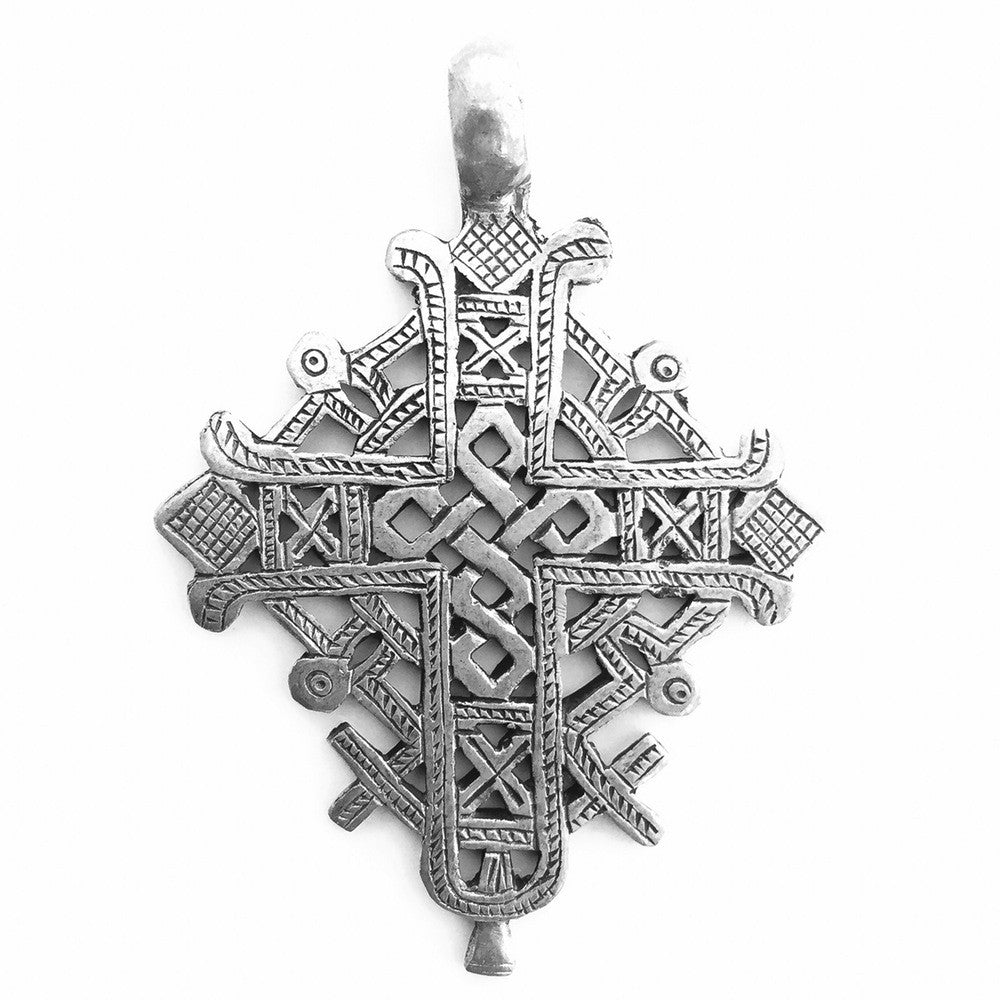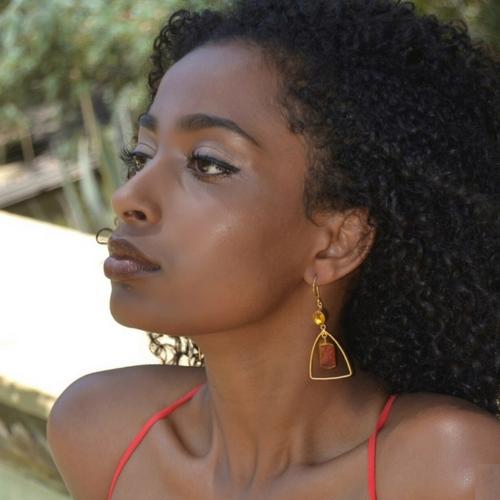Design I Culture I Lifestyle » signature collection
-
The Lalibela Cross – Timeless and Transcendent
Few religious artifacts are as universal, loved or revered as the cross in Ethiopia. Neck crosses have been part of Ethiopian culture for thousands of years (it is believed that Christianity was practiced there since 1st century AD) and were initially made from wood, bone, leather, carved stones or other local material. Beginning in the 19th century silver in the form of silver coins became more prevalent in rural Ethiopia and soon village silversmiths began to create neck crosses from silver. Not only the faithful adorn themselves with a small cross usually worn on a string or chain around the necks, but often times, many also get inked with the cross on their forehead, neck hand or forearms.
The crosses share a name with Lalibela, universally considered the holiest place in Ethiopia, home to Ethiopian Orthodox Christians. Throughout the wearable artifices, Holy Cross and Star of David are represented symbolizing the New Testament and Bible. The Lalibela cross is everywhere in Lalibela with citizens carrying the gold and brass crosses. They are timeless and transcendent.
Mombasa’s Signature Collection highlights the many variation of the Lalibela Cross. The collection signifies our heritage and is the essence of the brand. We hope you love these statement pieces in the Signature Collection – the Saba Beaded Cross necklace featuring faceted agate bead stones and pyrite beads; the Makeda Cross and Taytu Cross necklaces hand-crafted in our Los Angeles Studios using reclaimed leather and traditional glass beads. Each piece is unique and is designed for that special #Mombasababe with impeccable taste and a cultivated a sense of style.
Love & Light,
Mombasa



